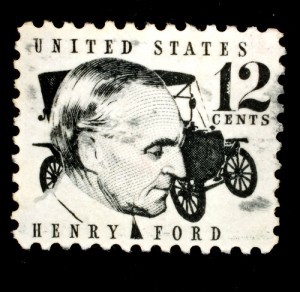Rich People Need to Think About Themselves By Helping Poor People

There is no good reason why the 1 percent, with their good educations, their ranks of advisers, and their much-vaunted business acumen, should be so misinformed. The 1 percent in generations past often knew better. They knew that there would be no top of the pyramid if there wasn’t a solid base — that their own position was precarious if society itself was unsound. Henry Ford, not remembered as one of history’s softies, understood that the best thing he could do for himself and his company was to pay his workers a decent wage, because he wanted them to work hard and he wanted them to be able to buy his cars. Franklin D. Roosevelt, a purebred patrician, understood that the only way to save an essentially capitalist America was not only to spread the wealth, through taxation and social programs, but to put restraints on capitalism itself, through regulation. Roosevelt and the economist John Maynard Keynes, while reviled by the capitalists, succeeded in saving capitalism from the capitalists. Richard Nixon, known to this day as a manipulative cynic, concluded that social peace and economic stability could best be secured by investment — and invest he did, heavily, in Medicare, Head Start, Social Security, and efforts to clean up the environment. Nixon even floated the idea of a guaranteed annual income.
Vanity Fair has an excerpt of Nobel Prize-winning economist Joseph E. Stiglitz’s new book about inequality, which argues that rich people need to reduce inequality for the sake of their own selves. It’s also what Elizabeth Warren has basically argued before: “There is nobody in this country who got rich on his own.”
Photo: Shutterstock/Brendan Howard
Support The Billfold
The Billfold continues to exist thanks to support from our readers. Help us continue to do our work by making a monthly pledge on Patreon or a one-time-only contribution through PayPal.
Comments